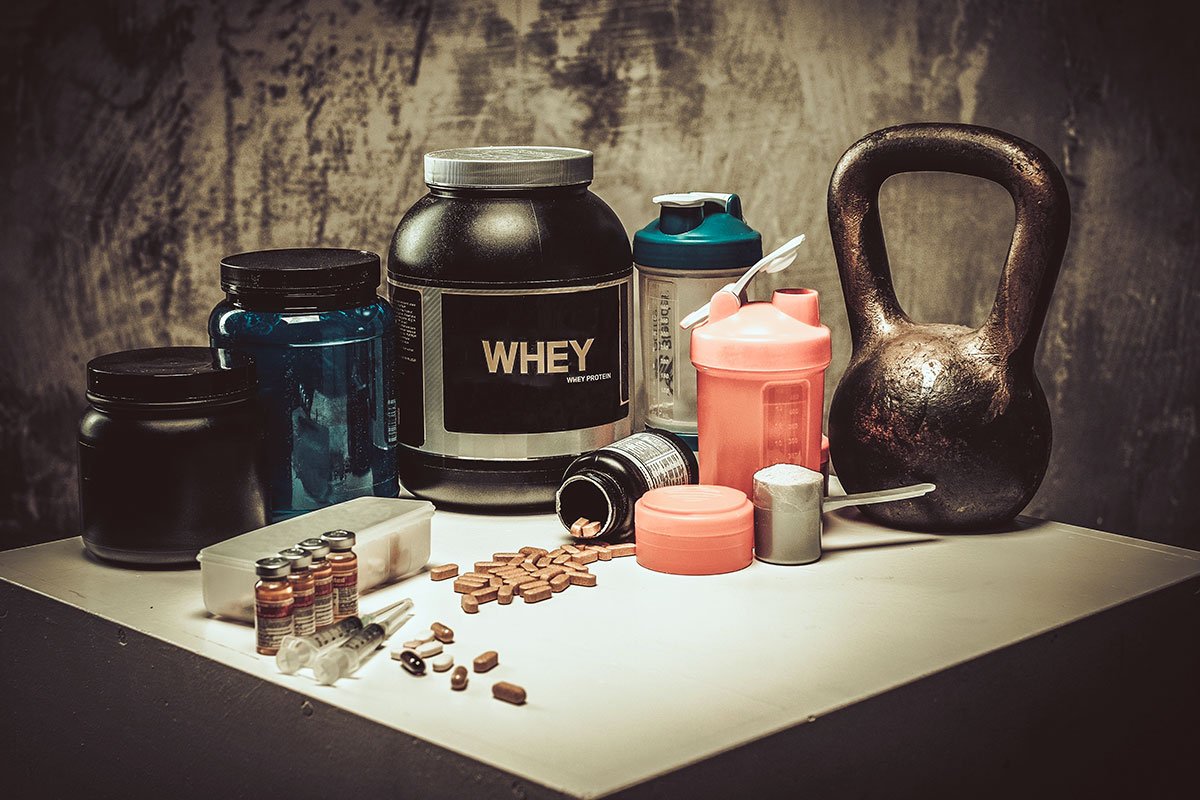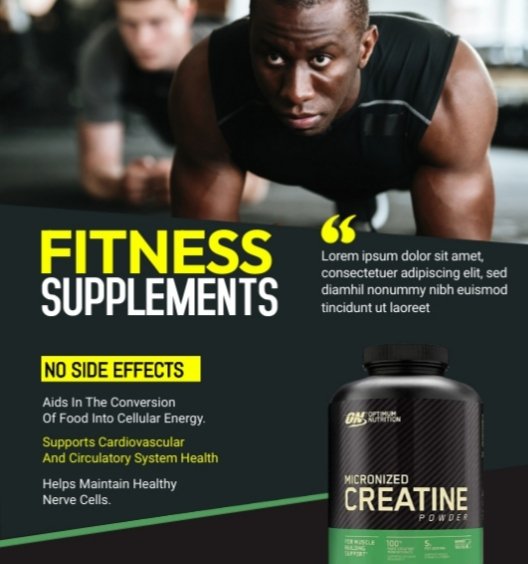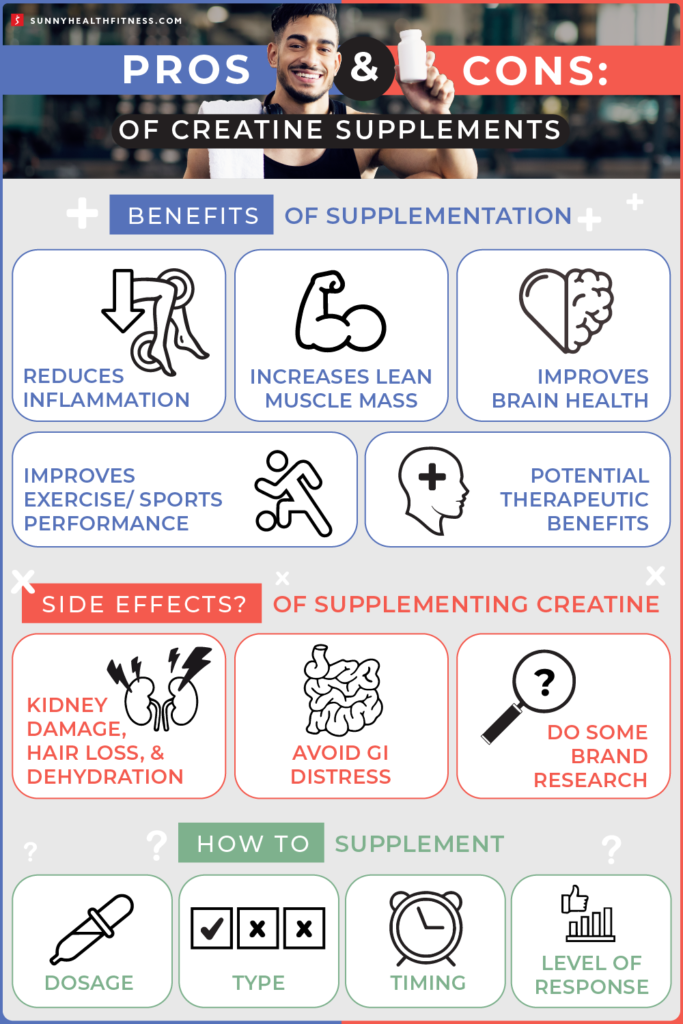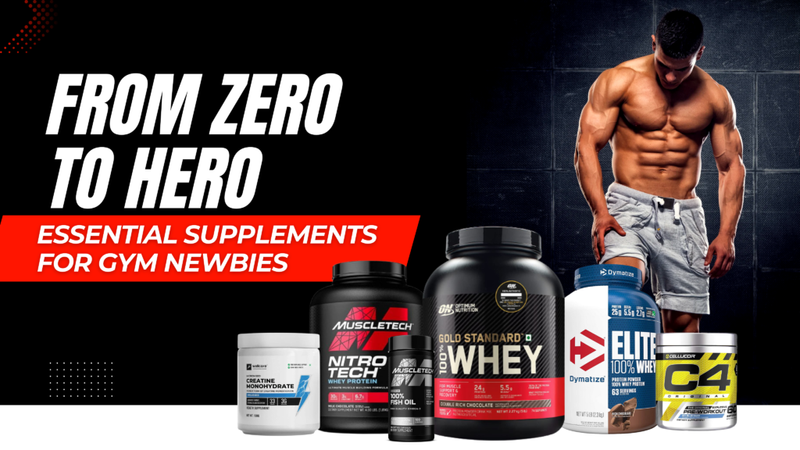Introduction to fitness supplements:
Fitness supplements can enhance performance, support muscle recovery, and boost energy levels, helping you achieve your workout goals.
In the world of fitness and bodybuilding, the use of supplements has become increasingly popular. Whether you’re an athlete looking to improve your performance, a bodybuilder seeking muscle gains, or someone simply aiming to optimize your overall health, supplements can play a pivotal role in supporting your fitness journey. However, with the wide array of options available, it can be overwhelming to decide which supplements are truly effective and safe. This article explores the most common types of fitness supplements, their benefits, and how to use them wisely.

1. Protein Supplements
What Are They?
Protein supplements are among the most widely used fitness aids, often available in the form of powders, bars, and ready-to-drink shakes. These supplements are typically derived from whey, casein, soy, pea, or other protein sources.
Benefits:
Muscle Repair and Growth:
After exercise, especially resistance training, your muscles need protein to repair and grow. Protein supplements provide an easy way to meet increased protein demands.
Convenience:
For those who struggle to meet their protein needs through whole foods, protein supplements offer a quick and convenient solution.
Common Types:
Whey Protein:
A fast-digesting protein ideal for post-workout consumption.
Casein Protein:
A slow-digesting protein that is best consumed before bedtime.
Plant-Based Proteins:
Suitable for vegans and those with dairy allergies, these proteins come from sources like peas, rice, and hemp.
2. Creatine:

What Is It?
Creatine is a naturally occurring compound found in small amounts in certain foods and produced in the body. It is one of the most researched and effective supplements for improving exercise performance.
Benefits:
Increased Strength and Power: Creatine helps supply energy to muscles during high-intensity, short-duration activities like weightlifting and sprinting.Improved Muscle Recovery: It may aid in reducing muscle damage and soreness after intense workouts.
How to Use:
Loading Phase:
Some suggest a loading phase of 20 grams per day for 5-7 days to saturate muscles with creatine, followed by a maintenance dose of 3-5 grams per day.
No Loading:
Others may prefer starting with the maintenance dose directly.
3. Branched-Chain Amino Acids (BCAAs):
What Are They?
BCAAs consist of three essential amino acids—leucine, isoleucine, and valine—which play key roles in muscle repair and growth.
Benefits:
Enhanced Muscle Protein Synthesis:
BCAAs, especially leucine, stimulate muscle protein synthesis, promoting muscle growth.
Reduced Muscle Fatigue:
They can help reduce exercise-induced muscle damage and soreness, leading to quicker recovery.
Support During Fasted Training:
BCAAs are popular among athletes who train in a fasted state to prevent muscle breakdown.
How to Use:
BCAAs are often consumed before or during workouts to reduce fatigue and enhance recovery.
4. Pre-Workout Supplements:
What Are They?
Pre-workout supplements are formulated to boost energy, focus, and endurance during workouts. They usually contain a mix of caffeine, beta-alanine, nitric oxide boosters, and other ingredients that enhance physical performance.
Benefits:
Increased Energy:
Caffeine is the primary stimulant in most pre-workout supplements, providing a surge of energy to power through tough workouts.
Improved Blood Flow:
Ingredients like arginine and citrulline help increase nitric oxide levels, promoting better blood flow to working muscles.
Delay in Fatigue:
Beta-alanine helps buffer acid in muscles, allowing you to push harder and longer during high-intensity activities.
Caution:
Excessive caffeine or certain stimulants may cause jitteriness, insomnia, or anxiety. It’s important to start with a smaller dose to assess tolerance.
5. Fat Burners:
What Are They?
Fat burners are supplements designed to aid in weight loss by increasing metabolism, suppressing appetite, or promoting fat oxidation.
Benefits:
Increased Calorie Burn:
Many fat burners contain stimulants like caffeine, which can enhance metabolic rate and fat loss
Appetite Suppression:
Some ingredients, such as green tea extract and garcinia cambogia, may reduce hunger, helping with portion control and calorie reduction.
Risks:
Many fat burners contain potent stimulants that can lead to side effects like jitteriness, increased heart rate, or digestive issues. Consult with a healthcare professional before starting.
6. Omega-3 Fatty Acids:
What Are They?
Omega-3s are essential fatty acids commonly found in fish oil supplements. They provide numerous health benefits, particularly for heart health and inflammation.
Benefits:
Reduced Inflammation:
Omega-3s can help lower inflammation, which is beneficial for recovery and overall joint health.
Enhanced Cardiovascular Health:
Omega-3s support heart health by improving cholesterol levels and reducing blood pressure.
Dosage:
Most people benefit from 1-3 grams of combined EPA and DHA (the active components of omega-3s) per day.
7. Multivitamins
What Are They?
Multivitamins are supplements that contain a combination of vitamins and minerals designed to fill any nutrient gaps in your diet.
Benefits:
Nutrient Insurance:
While a balanced diet is the best way to get vitamins and minerals, multivitamins can help ensure you meet daily requirements, especially during intense training.
Immune Support:
Certain vitamins, like C and D, and minerals, such as zinc, are crucial for immune function and recovery.
Use:
A once-daily multivitamin is usually sufficient for most people. Be cautious of taking more than the recommended dose, as excessive intake of certain vitamins can have adverse effects.
Pros and Cons of Fitness Supplements

1.Protein Supplements Pros:
Convenient:
- Easy way to meet daily protein requirements, especially for people with busy lifestyles.
Muscle Growth and Recovery:
- Supports muscle repair and growth after workouts.Variety: Available in different forms (whey, casein, plant-based) to suit dietary preferences.
Cons:
Overconsumption:
- Excessive intake may lead to digestive issues or unnecessary calorie intake.
Quality Concerns:
- Not all protein supplements are of high quality—some may contain fillers or artificial additives.
- High-quality protein powders can be expensive.
2. CreatinePros:
Performance Enhancement:
- Boosts strength and power during high-intensity exercise.
Well-Researched:
- One of the most studied and proven supplements for athletic performance.
Muscle Recovery:
- Can aid in reducing muscle soreness after workouts.
Cons:
Weight Gain:
- Can cause water retention, leading to temporary weight gain.
Digestive Issues:
- Some users may experience bloating or stomach discomfort.
Not for All Sports:
- Benefits mainly apply to short-duration, high-intensity activities like lifting, not endurance sports.
3. Branched-Chain Amino Acids (BCAAs)
Pros:
Muscle Preservation:
- Helps prevent muscle breakdown during fasting or intense exercise.
Enhanced Recovery:
- Can reduce muscle soreness and fatigue post-workout.
Easy on the Stomach:
- Often lighter on the digestive system than protein shakes.
Cons:
Limited Effectiveness:
- May not offer much benefit if you’re already consuming adequate protein through diet.
Expensive:
- Can be more costly compared to whole protein sources.
Unnecessary for Some:
- If you’re meeting protein needs, BCAAs might not provide significant additional benefits.
4. Pre-Workout Supplements
Pros:
Increased Energy:
- Provides a boost of energy and focus, enhancing workout intensity.
Better Endurance:
- Ingredients like beta-alanine help delay fatigue.
- Mental Focus: Improves concentration during exercise.
Cons:
Jitters and Anxiety:
- High caffeine content can cause side effects like jitteriness or anxiety.
Sleep Disruption:
- Taking pre-workout late in the day may interfere with sleep.
Dependence:
- Some users may become reliant on pre-workouts to feel motivated to train.
5. Fat Burners
Pros:
Boosts Metabolism:
- Can increase calorie burn and fat loss during exercise.
Appetite Suppression:
- May help reduce hunger and support calorie control.
Increased Energy:
- Often contain stimulants to help boost energy levels during workouts.
Cons:
Side Effects:
- Can lead to jitteriness, increased heart rate, or digestive issues.
Temporary Results:
- Effects are often short-lived, and fat loss depends more on diet and exercise.
Potential for Dependency:
- Overuse of stimulants can lead to reliance or tolerance.
Conclusion:
Fitness supplements can provide valuable support for enhancing performance, speeding up recovery, and filling nutritional gaps, especially for those with specific fitness goals. However, they are not a substitute for a balanced diet and consistent training. The effectiveness of supplements varies depending on individual needs, lifestyle, and the quality of the product.
While supplements like protein powders, creatine, and omega-3s are backed by research, others, such as fat burners and certain pre-workouts, may come with more risks than benefits. It’s essential to approach supplementation with caution, prioritize natural food sources, and consult with a healthcare professional before integrating new products into your routine. When used wisely, fitness supplements can play a supportive role in optimizing overall health and athletic performance.
you must watch 👁️👁️ this article 👇👇⬇️
Muscle Recovery Supplements: Do They Really Help





